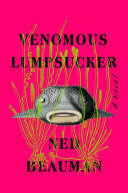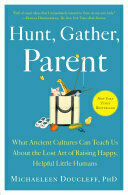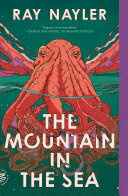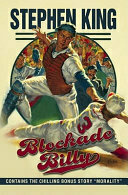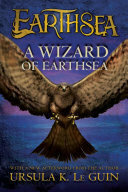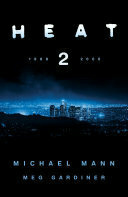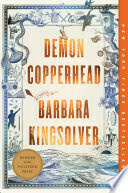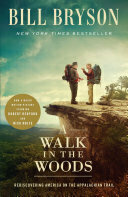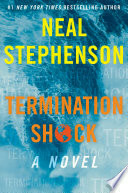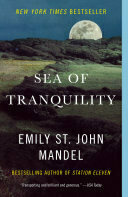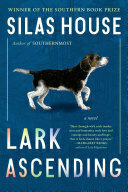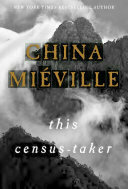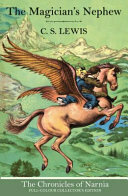Long Posts
-
And what a great name for that concept. ↩︎
- Andor, s1
- Empire
- Rogue One
- TLJ
- A New Hope
- The Force Awakens
- RotJ
- Mandalorian, s1
- Mandalorian, s2
- Solo
- I got back into reading physical books this year and realized that this is my preferred medium. Of the 15 books that I finished in 2023, three were on my Kindle and the rest were all physical hard copies. I did not listen to any audiobooks this year.
- My favorite book I read this year was, without a doubt, The Mountain in the Sea by Ray Nayler. I cannot wait for the follow-up, The Tusks of Extinction, which I’ve already pre-ordered and is scheduled to ship on January 16th. I loved everything about this book.
- I also read several others that I would give a full five-stars to: Heat 2, Demon Copperhead, A Walk in the Woods, and This Census-Taker.
- Every book I finished this year was worth the time. One of the changes to my approach that I’d credit with this “good book year” was a new policy to give up on a book more easily than I’ve done in the past without any guilt. Sometimes, a book just doesn’t click for whatever reason and I think that’s OK. This has been a sticking point at times in the past where I’ve tried to keep making it happen and felt like I couldn’t' move on to something else until I’d finished what I’d started and then wound up reading nothing instead of just moving on. Life’s too short and there are way too many books for that. The one exception to this was Neal Stephenson’s Termination Shock, which I did not like but read to the end anyway, even though it was also the longest book I read this year. Even though I didn’t like it, it had some really interesting ideas and at least one or two interesting characters that made it worth the slog.
- I read the two Narnia books with my six-year-old son. He really loved them and I loved experiencing them with him. I even enjoyed revisiting these books, despite some negative associations stemming from an undergraduate C. S. Lewis survey course. I expect that we’ll continue exploring this series together this year.
-
And, in one of my favorite pop culture moments of 2023 so far, The Christmas Song is featured over the end credits of the incredible sixth episode (“Fishes”) of season 2 of The Bear. I raised my arms in triumph. ↩︎
-
Yes, I know it’s paywalled, which sucks for any one who happens to read this who does not subscribe to Defector but, seriously, what are you waiting for? That’s the best site on the internet. Yes, I am a shill and proud member of the Defector Buddies Street Team. ↩︎
-
This was not a dead giveaway, but I had my suspicions as, after having been exposed to the wonders of computers both at school and at a few friends' houses to that point, I had been working on my parents for some time to take the plunge. ↩︎
-
I finally, after all these years, get the reference. My 12-year-old self was less familiar with Johnny Cash, though I’d probably heard the song at that point. ↩︎
-
And, as a kid whose music prior to this Christmas had come on cassette tapes or my parents old vinyl, I know that the major technological advancement of CDs was that you could easily skip tracks (!), but that was never the way I listened to music. Probably because my formative experiences with owning music were with cassettes, I’ve always been a “listen through the album, at least when its new” kind of person. Maybe that’s the real thing I miss. It’s still certainly possible with Spotify and the like, but the recommendations seem to steer toward singles and playlists rather than full albums. ↩︎
-
Not someone to whom I wish to draw unfair DeSantis comparisons, but this was not one of his better moments, obviously. ↩︎
- Andor, Disney+
- Severance, Apple TV+
- Station Eleven, HBO Max
- Only Murders in the Building, Hulu
- House of the Dragon, HBO Max
- The Bear, Hulu
- Barry, HBO Max
- For All Mankind, Apple TV+
- 1899, Netflix
- The White Lotus, HBO Max
- Hulu: I think I only watched three complete seasons on Hulu this year, one of which (Bob’s Burgers) is technically a network show that I was watching the day after air. Not sure whether The Bear should technically fall into that category since it’s an FX thing, but, anyway…
- Apple TV+: Several other series on Apple TV+ were on my extended list (Slow Horses, The Afterparty, Mythic Quest, Black Bird). I’ve come to the realization this year that, while Apple TV+ doesn’t have as many shows that interest me, an extremely high percentage of shows that I watch on this service really make an impact. I think they’ve got to do better in terms of marketing because I still don’t feel like these shows are talked about as much as shows on other services (with the exception of Ted Lasso and, to an extent, Severance). Several other shows on this platfrom deserve a wider audience than it seems like they’ve found thus far.
# 🎵 An hour-long Oasis playlist
After getting hooked on @adam ’s St. Vincent playlist and the rest of their “Finest Hour” series in which they “compile [their] favorite of an artist’s songs into a playlist not a minute longer than 1 hour in duration1,” I decided to take the format for a spin myself, starting with Oasis.
Gtting this playlist under an hour was an excruciating task. I had to cut a dozen or more songs that I consider among my favorite by any artist. Initially, I had almost four hours. But I’m proud of what I ended up with. I love having the constraint of an hour… takes me back to the days of recording cassettes or burning CDs and being by their capacity.
The more constraints one imposes, the more one frees oneself of the chains that shackle the spirit.
–Igor Stravinsky
Winging it
This is now my fifth post of WeblogPoMo across three different sites. Maybe I’ll try for four by the end–I’ve heard great things about Pika. There are things I like about each of the trio of micro.blog, weblog.lol, and scribbles.page. I guess it’s nice to have options. Maybe through sheer volume I’ll have some semblance of a plan or path by the end of the month.
Star Wars Day Top 10 #WeblogPoMo2024
As a kid whose most formative years fell in the early 90s, I missed some of the Star Wars craze, and might have missed it altogether if not for my friend Geoff. He had a couple older brothers who I think had introduced him pretty early on and he was obsessed. I remember watching the original trilogy on VHS at Geoff’s house many times (Star Wars and Sega and Space Hog), and I know for sure that was my initial introduction. At the time–I think I was maybe 8?– Return of the Jedi was my favorite.
The “Special Edition” theatrical releases came out while I was in junior high and by then Empire was my favorite (of course). I remember going to the theater with Geoff and several other friends to catch these and it really took the experience to another level to be able to watch on the big screen. I wasn’t attached enough to the originals to take offense to any of the changes, but I empathized anyway.
The prequel trilogy debuted around the time I started high school and I also remember going to see all of them in the theater with groups of friends. I did not care for them, but I had one friend who really loved them.
We had this super cool theater in the town where I grew up that was kind of a dump–a relic of another time. One screen. Old, saggy seats. Bad concessions. But it was in our town. And it got new movies. And a bunch of us could meet up there and watch something and then use the pay phone on the corner to call for a ride. It was amazing.
I never got into any of the animated series, and kind of let Star Wars as an entity fade from my mind in the years after the prequels, but I was, somewhat surprisingly, super excited about the announcement of the new sequel trilogy and have really liked several of the films and tv series. Anyway, all of this is intended to lead in to my (a relatively casual fan who needs to do a lot of catching up on stuff) completely non-definitive ranking of my top ten favorite Star Wars properties, in terms of how much I like them on this May the Fourth of 2024.
Lifelong Learning
I realized recently (or, maybe just remembered) that learning is one of my favorite things in the world. This week, it came up in a work context wherein I volunteered to cross train with another department despite being completely buried with my own work at the moment and having already committed to other similar opportunities that haven’t even begun. I’m fortunate enough to work in a role and for a company that values learning and puts enough priority behind it that we can actually take advantage and build some new knowledge within our company and field. It’s the most excited I’ve been for a new project in quite a while.
#WeblogPoMo2024
🔗 Suicide Mission: What Boeing did to all the guys who remember how to build a plane
A shocking look at the inner workings at Boeing from Maureen Tkacic at The American Prospect.
Nine days after the stock reached its high of $440, a brand-new 737 MAX dove into the ground near Addis Ababa, Ethiopia, at nearly 800 miles per hour, killing 157 people on board, thanks to a shockingly dumb software program that had programmed the jets to nose-dive in response to the input from a single angle-of-attack sensor.
What will it take for corporations like this to start putting something–anything! safety! literal lives!–ahead of stock price?
The real action is in novelty 📚 💬
I can’t believe all these animals we have are real and we just take it for granted I said before drinking half of my glass. Growing up our parents tell us there’s no such thing as monsters so we’ll go to sleep but a bear is a monster and a moose is a monster and a bird is a monster too. Every bird in the world would rip your head off if it were somewhat larger and you were somewhat slower.
Imagine if whales didn’t exist and then one showed up out of nowhere? We’d never stop talking about it Joe said. We would never get over it.
It’s probably no coincidence that the most famous novel ever written was about how fucked up a guy got after knowing about one particularly angry whale.
It’s just that we get used to the things that are scary Joe said. The real action is in novelty.”
― Luke O’Neil, “Kingston Street” from A Creature Wanting Form
My favorite quotes of 2023, Sports Edition
From Defector’s Ray Ratto’s December 4th article “The 49ers Are Big Dom Now”:
But in whomping the Eagles and briefly incapacitating quarterback Jalen Hurts in to [sic] process, they also invoked the wrath of the Eagles' security chief, Big Dom DiSandro, a a restaurant refrigerator with ears who looks like he gets a royalty check every time someone says, “Philadelphia.”
Also from Ratto, in his “100 Wins Doesn’t Buy What It Used To”:
All playoffs must have a theme, no matter how flimsy–at least until a champion is crowned and everyone involved is promoted to Super Genius (trademark Wile E. Coyote). This postseason has its theme already: Because division winners are dropping like flies, the regular season has been reduced to six months of garbage and the character of baseball is destroyed. . .
The regular season doesn’t matter when you’re looking to define enduring excellence. This year was just its logical extreme–when 404 regular-season victories (Atlanta, Los Angeles, Baltimore, Tampa Bay) translated into one total victory in October. . . The mighty have sucked and the modest have been running the vacuum.
No sport has changed itself in the last decade more than baseball, and it will continue to do so in search of a younger generation that is abandoning sports in general as a viewing vehicle because all sports suck when watched on a phone. Increasingly expanded playoffs are just part of the price that must be paid in search of that dollar that can never be obtained. If this helps, think of the new format as a plunging neckline as established most assuredly by those trollops in Philadelphia. This isn’t the regular season being diminished, it’s just sexing up a game that used to be played in flannel.
One more Ratto, from “All Glory To The Beam":
Your time-honored allegiances are destroyed, and you are now Children of the Incarnate Beam.
I think that last one really captures what I love so much about reading Ray Ratto. No other writer made my laugh as consistently in 2023. It’s just a throwaway line in an intro about the wonderful story that was the Sacramento Kings, but it’s awesome.
Now for some non-Ratto sports quotes.
Many, many excellent quotes in Cody Stavenhagen’s run-down of Jim Leyland stories at The Athletic, published on the eve of Leyland’s induction into the Baseball Hall of Fame. Forgive me for quoting extensively, but this was probably my favorite article of the year in terms of the amount sheer joy received from its reading.
The man who met [Kirk] Gibson at the airport was the mustachioed 33-year old manager of the Class A Lakeland Tigers. Almost as soon as Gibson settled into the passenger seat, the manager about half his size starting tearing into him. “Gibson, you’re not s—!” the skipper said, and he was just getting going. “I don’t care what you’ve done. I don’t care how much they’re f—- paying you. You’re gonna be at the park at 8 every morning. You’re gonna get to work.”
The guy to call [for Leyland stories], outfielder Andy Van Slyke told [writer David O’Brien], was bench player Gary Varsho. “That was Jim’s voodoo doll,” Van Slyke said. Varsho had stories, all right. The first one he told was of the day he was traded to the Pirates in 1991. He was sitting at his new locker in the clubhouse when Leyland ran out of the manager’s office in his underwear. The coaching staff’s March Madness pool had been decided. “He’s got $20 and $50 bills hanging on his jockstrap,” Varsho told O’Brien. “He’s bouncing around saying, ‘Who won the basketball pool? Who won the pool, Varsh?’ I said, ‘Oh my god, this is our manager.'”
Here’s how Leyland tells the story of the day the Tigers signed him in 1964. Their scout came to the door in Perrysburg. Leyland’s father answered. “Mr. Leyland, we would like to sign your sogn for $1,000,” the scout said. “Sir,” Leyland’s father replied, “we don’t have that kind of money.”
A good Leyland tirade, Brandon Inge once said, could go 10 minutes. “He’d walk down the hallway still yelling, but you could hear his voice fading out down the hall. And then you’d hear him coming back and his voice getting louder. Everybody would go, ‘Sit back down. Here he comes again.'” Ryan Dempster tells a version in which Leyland came and went five times, then said, “I’m going to go into my office and have a whiskey and a cigar. If I come out in this locker room and there’s anybody sitting here when I come out, I’m calling the cops and having you arrested for impersonating a major league f–ing baseball player.”
[Sean] Casey had been traded from the Pirates to the Tigers the previous year. His first day with Detroit, Leyland pulled Casey into his office with assistant coaches Gene Lamont and Lloyd McClendon. Leyland went over some basics, then Lamont gave Casey a crash course on the team’s signs. At one point, Leyland interjected. “If you get on base, I don’t want you looking to third at Gen-o,” he told the slow-footed veteran. “I want you looking in the dugout. I want you to look at me. If I come to the top step of the dugout and we catch eyes, as soon as we catch eyes, if I jump up and never come back down, that means I want you to steal.”
Another of my favorite articles of the year was Drew Magary’s “Now That I Think About It, The Unwritten Rules of Baseball Are Actually Cool”, also at Defector.
I have complained about umps for the majority of my lifetime, to the point where the idea of replacing them with computers genuinely excited me. But sometime this fall, I realized that it’s the stupidity of baseball that makes it fun. I love seeing managers bump chests with umps. I love ejections. I love seeing batters give the home plate ump a dirty look after a bullshit called third strike. I live for the DRAMA.
And you know what? I even like all of the unwritten rules shit, too. That’s right. When I saw Adolis Garcia get beaned by Bryan Abreu in Game 5 of the ALCS, I was fucking riveted. Abreu plunked Garcia for having the temerity to spike his bat–also way cool–after homering off of Justin Verlander in his previous at-bat. Did tempers flare? Buddy, you know they did. Benches cleared. Stocky relievers came pouring out of the bullpens. Everyone got all up in everyone else’s business. I had stood against MLB’s bro code for so long that my opinion on it had become automatic: it was bad. All of the written rules should be written down. No one player should feel slighted because, in his mind and perhaps his alone, some other player lacked proper ethics.
But do I really want, like, a fucking discipline committee to legislate all this shit? The NFL already makes rules for everything. Do I want another sport to be like that? I don’t. We can keep the pitch clock, but otherwise, I’m all for anything that, justified or not, stokes visceral hatred between two teams and encourages frontier justice. I want more fake fights, more real fights, more beanings, more imaginary strike zones, more arguments, and more bases pulled out of the ground and thrown in anger. All of that is fun. All of that is baseball.
This year’s award for “Article Written Specifically to Align with Brett’s Personal Tastes and Interests” goes to Grant Brisbee, Rustin Dodd and Stephen Nesbitt of The Athletic in their August 21 entry entitled “MLB Power Rankings: Mariners, Dodgers see some gains; We make a team-themed ’90s playlist”, which included the following gem from Dodd.
Chicago White Sox
Record: 49-75 Last Power Ranking: 27
Track: “Undone (The Sweater Song)” by Weezer
There’s a history of clothing coming to pieces in Chicago. Not only that, Rivers Cuomo’s lyrics from this classic on Weezer’s debut album feel especially apt: “Oh no, it go, it gone, bye-bye.” In fact, as I type those lyrics, I feel like those lines could be repurposed into the greatest home run call in baseball history.
Let’s set the scene: It’s September in Chicago. Royals are in town for a series on the South Side. Dylan Cease throws a fastball to Bobby Witt Jr., who demolishes it to deep left. “Oh no,” Jason Benetti says, solemnly. “It go. It gone. Bye-bye.”
Steven Goldman at Baseball Prospectus wrote a fantastic article about baseball’s Opening Day with “Opening Day is Your Last Chance”.
As one who has struggled to control his weight for much of his life, I understand the potentiality and the pressure of Opening Day. When I was a child, every summer my parents would load me, my younger sister, and up to three cats into a mid-sized sedan and drive across America for more than a month, arriving home the night before my personal Opening Day, the first day of school–except for those years when something went wrong and we didn’t make it back in time. . .
Opening Day is your last chance. The first day is the last day. Initial impressions are often final impressions, and once your season has begun it’s usually too late.
Year in books, 2023 📚
Here are the books I finished reading this year.
This was a very good book year for me. Probably the best in a decade or so in terms of both quantity and quality. Here are a few themes and highlights.
Looking forward to reading even more in 2024. Bring on the weird.
The 5 best Weezer songs ever 🎵
Today, in his Welcome to Hell World newsletter, Luke O’Neil posted an impressive roundup of “musicians and music writers and other friends” takes on the top five Weezer songs of all time. I was not asked to participate because a) I am not a musician, b) I am not a music writer, and c) I am not a friend of Luke O’Neil’s (which, if this particular newsletter post is any indication, is a shame). But, never one to shy away from sharing my Weezer opinions with anyone who would listen (either willingly or unwillingly), I decided not to let that stop me from putting together my own contribution.
I started this list with about 20 songs that I consider my all-time favorites. From there, I tried to eliminate first the ones that I hold in such high esteem for purely or at least mostly sentimental reasons. I’ll write some of those up as honorable mentions later. So, in sticking to the prompt, here are what I consider to be the five best Weezer songs of all time.
5 - The Christmas Song This is kind of a stand-in for a whole mini-era of songs that Weezer released during their hiatus between Pinkerton and the Green album, but I think it’s the best of the bunch. I got super into Weezer at kind of an awkward time… I got extremely into the Blue album right after Pinkerton was released (I’d of course heard the singles but got the CD for Christmas ‘97 and fell completely in love. I got into Pinkerton then at some point maybe a year after, but by the time I was completely obsessed with Weezer, they’d already been through the failure of that sophomore album and Matt had already left the band and they had kind of disappeared. As it happens, this was also around the time that I had my first access to the internet at home. This opened up a whole world of lore building and mythologizing around my new (and first) favorite band. The message boards were on fire with speculation about whether they would return and discussions of what was so great about the first two albums, etc. Weezer included an amazing cover of Velouria on the Pixies tribute album in 1999, then, in the summer of 2000, some demos and live recordings (collectively known as the “Summer Songs of 2000” started showing up on those message boards (“Too Late to Try” is the first I remember hearing, which was in my original list of 20, but didn’t make the final cut). It was an extremely exciting time in Weezer fandom as we realized then that there would be more new music from Weezer, but the recordings weren’t the best quality, and while it was thrilling to have new music, none of these songs really hold up or stand out in the overall Weezer catalog. But The Christmas Song, released at the end of 2000 for KROQ’s annual Christmas compilation, does stand up against the very best of Weezer1.
4 - Jamie Incredible song. I picked it up on the DGC Rarities, Vol. 1 CD where I was first introduced to Teenage Fanclub. Like The Christmas Song, this is the chosen representative of a group of songs, in this case the Blue- and Pink-era B-sides. If this were a list of the 20 best Weezer songs, all of the B-sides from the Blue and Pink eras would be on the list, but since it’s just five, Jamie is my favorite of the bunch, at least today.
3 - My Name is Jonas I can’t think of an opener that’s better than this one. The perfect song to open my favorite album of all-time. The awesome finger-picked acoustic intro (shoutout to Jason Cropper for appearing in 2/5 songs on my top 5!), the build up to “THE WORKERS ARE GOING HOME” and the harmonica sneaking in there. What a song. And I don’t think there’s anything else quite like this one in the whole Weezer catalog.
2 - El Scorcho Lyrics are pretty uncomfortable in retrospect (Pinkerton, in general), but that chorus is just perfect and so so singable. This is driving in my first car – a powder blue 1986 Chevy Celebrity – singing at the top of my lungs.
1 - Holiday / Only in Dreams I cheated! BUT, it’s really the way these two fit together that I love so much. The end of Holiday–“Let’s go away, let’s go away in a heartbeat…"–into that bass line of Only In Dreams is probably my favorite minute-or-so stretch of music I’ve ever heard. Just as the blue album has a perfect opening, it’s got the perfect closing.
This fuckin' guy ⚾️
Yesterday, Commissioner Rob Manfred held a press conference following the MLB’s owners meetings. This has, of course, been covered pretty thoroughly by the usual baseball writers and I continue to grow more appalled every time I read a new iteration of that coverage.
First, Keith Olbermann worked it into the sports segment of his daily Countdown podcast, in between his latest takes on the Trump indictment. This, I found fitting because, while Rob Manfred has certainly not done as much damage to something so important as the United States of America as has Trump, he continually forces the comparison (at least in my mind) with his repeated smugness and apparent disdain for the people he claims to serve. And, while he has not accounted for any real or imagined damage to the nation (that I am aware of, anyway), every time Manfred speaks publicly I again feel that same feeling in the pit of my stomach that I felt throughout Trump’s presidency and that I again feel every time a new revelation comes to light outlining the myriad and despicable ways he abused the power of that office: a mixture of disgust at watching something I love so much being destroyed from the inside by someone who claims to be helping and a powerlessness to do anything to make it stop.
That said, there is one clear difference between Manfred and Trump, and that is the cause of the hopelessness part of the feeling I described. With Trump, that hopelessness was caused by the fact that so many folks around me–including many, many people who I otherwise hold (or held) in high esteem or who were, for all intents and purposes, normal insofar as I consider myself relatively normal–were seemingly participating in a version of reality that was altogether different from mine. This person, who was repeatedly saying the most vile, ignorant things imaginable and repeatedly proving himself to be unfit for the both the office of president and for life in civilized society, was somehow appealing to these folks. I don’t think I’ll ever fully understand that appeal (and every plausible explanation is too simple and depressing to dwell on for too long). And that inability (or unwillingness) to understand led to that hopelessness. If I had so misunderstood so many of my friends and colleagues, how could I hope to convince them that my way of seeing the world was in fact the correct one? If we we’re essentially experiencing different realities and speaking different metaphorical languages, what hope was there of finding a common ground or of making sure things were better the next time around?
With Manfred, that hopelessness is entirely different. All the normal people in my life–friends and family, colleagues, baseball writers, etc.–think this guy sucks. From baseball fans, at least, it’s nearly universal agreement and this guy is an awful person hell bent on making baseball worse. So, it’s nice to feel like I’m experiencing the same reality as my peers, but it’s no help when the commissioner of baseball is not elected by my (or really anyone else’s) peers; his power is not awarded by us normals, but by the owners, and the owners have a lot more in common with Trump than with any “normal” people by any definition. But I’ve got the same chance of wresting control of baseball from the owners as I do of ever understanding Trump’s appeal to so many.
Anyway, the second recap of these Manfred comments that got me wound up enough to write a blog post was the incomparable Craig Calcaterra at his excellent Cup of Coffee substack. I’m going include a lengthy excerpt because Craig says it all so well.
Evan Drellich of The Athletic faithfully transcribed the Q&A with the press. I’ve been writing about baseball and the crappy men who run it for a long time now and even I was shocked by just how horrible Manfred came off.
Here he is talking about how Major League Baseball, which Manfred claims prefers teams to not move, has come around to being OK with the Athletics moving:
I feel sorry for the fans in Oakland. I do not like this outcome, I understand why they feel the way they do. I think that the real question is, what is it that Oakland was prepared to do? There is no Oakland offer, OK? They never got to a point where they had a plan to build a stadium at any site. And it’s not just John Fisher. You don’t build a stadium based on the club activity alone. The community has to provide support and you know, at some point, you come to the realization, it’s just not going to happen.
This is objectively false. There was an all-but-done deal with Oakland to build a stadium at Howard Terminal. It was a hell of a lot closer to being done than anything in Las Vegas at the time. The A’s broke off negotiations with Oakland, however, not because they weren’t getting an offer on a stadium deal but because one was imminent, it was quite clearly going to be a much better offer than anything Las Vegas was offering, and would’ve, in fact, been much better than what the A’s eventually got in terms of public money to be spent and out-of-pocket expectations for John Fisher. It’s an offer that, once official, would’ve been very hard for the A’s to turn down and still leave town, that’s for sure.
The problem was that if Oakland’s offer was hanging out there, waiting for the A’s to accept or reject it, it would screw up Fisher and Kaval’s “Oakland doesn’t want us here" rebop that, in their minds, justifies the move. And yeah, the fact is that they, and Major League Baseball, want the A’s to be in Las Vegas, not Oakland, full stop. They want the close associations with the gambling industry, they want the glitz and glamor that comes with it, they think they have an opportunity to make massive amounts of money by virtue of corporate partnerships, and I suspect Fisher and Kaval themselves believe they will stand to benefit far more personally from the relocation than they would if the A’s stayed in Oakland. It’s their business, of course, and if they want to make decisions like that they can make decisions like that. They just didn’t want to say it out loud and now they’re weaving lies in order to trash Oakland and rewrite history to cover for it. It’s a horrible look.
Manfred was then asked if he was aware of Oakland fans’ “reverse boycott” on Tuesday night, when fans showed up to protest the team’s imminent move to Las Vegas and show their support. See if you can detect the shitty sarcasm:
It was great. It’s great to see what is, this year, almost an average Major League Baseball crowd in the facility for one night. That’s a great thing.
If you’re the Commissioner of Major League Baseball and you’re finding yourself giving quotes gleefully shitting on passionate baseball fans who were desperately trying to keep their team in town, you may want to ask yourself what in the actual fuck your problem is. Tuesday night’s showing in Oakland was one of the coolest and most inspirational fan moments in recent memory. It was a genuine show of love and support on the part of baseball fans who, despite likely knowing the gesture would be futile, wanted to express their love for their team. And then in wades Manfred with this shitty and backhanded wisecrack. I’d call him a turd in the punchbowl, but I have too much respect for turds to tar them with such a disparaging association.
Manfred was then asked about whether he sees it as his job to help baseball owners get public funding for stadiums. He kinda dodged for a moment but then said “it is in fact good business to have a public-private partnership to get those facilities built.” This was the followup question and answer:
How do you reconcile that there’s a large volume of academic studies that say these stadium subsidies do not produce positive benefit?
I love academics, they’re great. I think, take the areas where baseball stadiums have been built, OK? Look at what was around Truist Park before that was built. Look at the area around Nationals Park before it was built. I lived in that city. You know, academics can say whatever they want. I think the reality tells you something else.
Rob Manfred is not a dumb man and he knows better than this. He knows what the studies say and that just because there are shiny new buildings near a ballpark that it does not mean that public subsidies have created a net benefit. Indeed, he has hired bought-and-paid-for-experts to try to combat those studies when it suits him and he’s never been able to do so convincingly. The fact is that Rob Manfred is simply an asshole who has contempt for everyone except the 30 men who pay his salary so he has no trouble whatsoever spouting anti-intellectual claptrap like this which he knows to be false. Doing so helps him get past a question he doesn’t want to answer and ingratiates him to his employers, so he does it.
Manfred was then asked if he thinks Oakland fans will or should support the A’s once they move.
I hope so. I hope that they stay baseball fans, whatever they decide to affiliate with. Again, I’ll say it again: the piece of this particular series of events that’s the most disturbing to me is the idea of fans that have supported the team losing a team. We hate that idea.
Yeah, he hates it so much that a mere three minutes prior he was making fun of A’s fans for showing up and supporting their team. So you know it’s a totally genuine sentiment.
No matter how hard Manfred tries to be ambassadorial — and he tries less these days than he used to when he first got the job — he’s actually a petty and unpleasant little man. It comes through fairly often, but it’s been a minute since he packed this much slimy, disingenuous crap into one public appearance. It was a truly bravura performance.
Rob Manfred is a bad guy all around. Many in the game knew that already, but it’s remarkable how little he tried to hide it yesterday.
🔗 Turns out, plants make a lot of noise when they're stressed
Justine Calma, for The Verge, summarizing research from Tel Aviv University:
Tomato and tobacco plants in particular make clicking sounds when they’re dehydrated or being cut [. . .] Distress sounds were more prolonged for plants deprived of water. They made increasingly more noise in the first few days without water, reaching a crescendo before quieting as they dried out.
Seeing this after reading about the “panpsychist” movement earlier this week is striking me as incredibly sad.
🔗 The Lost Art of Being Stuck With An Album
Felix Kent, writing at Defector1:
For either my 12th birthday or the Christmas before my aunt gave me a copy of R.E.M’s Green, which has an orange cover. She also gave me a copy of Belinda Carlisle’s Runaway Horses (Belinda looking sultry in black and white and a crochet sweater thing) and a third album. I can’t remember what the third album was; it might have been the Bon Jovi album with the cover that looked like denim.
While Felix ultimately comes to the conclusion not that this now old-fashioned tradition of being “stuck” with an album and listening so much that you learn to love it was a good thing, but rather that “it was bad and annoying that getting music was so hard,” it still conjured some particularly nostalgia for me that I couldn’t resist.
Right around the same time in my life – I am almost certain is was the Christmas after my 12th birthday – our big family gift was a desktop computer. An Emerald Green Acer Aspire. It was the first computer our family ever had and eventually became the gateway to our first internet access. But before it was that gateway, it was also our first CD player. I remember that the big surprise was given away2 ever-so-slightly because three of the gifts shoved in my enormous stocking that year, which was traditionally opened before all the presents (especially any big family presents), were CDs: Queen’s Greatest Hits I; Weezer’s Blue Album; and Goo Goo Dolls' A Boy Named Goo.3
I relentlessly listened to these three CDs. I can still sing along to all three of them. For two of them, this is not surprising: a greatest hits compilation by one of history’s greatest rock bands and a seminal 90s post-grunge album that would serve as the cornerstone for the development of my musical tastes to this day. But that third one sticks out a little bit. A Boy Named Goo is not, now, one of my favorite albums of all time. It is not one that I remember as having had an outsized influence on my overall musical taste or one that I would hand-pick to be among the first to play through my car’s speakers years later on my 16th birthday. For the Goo Goo Dolls, it was a bit of a transitional album as I have come to understand. The success of the mega-hit “Name,” the sixth track on that CD, undoubtedly changed the future trajectory of that band and sounds, in many ways, like a lot of their future radio hits. But a lot of A Boy Named Goo is faster paced and has a harder edge representative of the punk sound of their pre-“Name” albums. (Truthfully, I never really listened to another Goo Goo Dolls album nearly as thoroughly as I listened to A Boy Named Goo, but the sound of the majority of that album is nothing like the sound that I think is most frequently associated with the band. Their Greatest Hits album, for example, does not contain a single song from any of their four albums that preceded A Boy Named Goo and contains only “Name” from that record.)
But, because, at the time (for the next couple years, anyway, before Napster and the rest ushered in a new era), “getting music was so hard,” I wore that CD out. Even though it wasn’t what I expected. I’d heard “Name” and “Naked” on the radio and loved them. Sure, this CD had those two tracks but most of it sounded quite different4. Had I heard those two singles in the new era of music availability, the algorithm would have recommended more songs that sounded like those songs, rather than songs by the Goo Goo Dolls, specifically, and I may have never heard the rest of the album. But because it was one of three CDs that I owned for some time, it was in the regular rotation and I grew to love it. Maybe that doesn’t happen if music is more available at the time. Probably it wouldn’t have. And I think I probably land on the same side as Felix that “the fact that good things can come out of contingencies does not make the contingencies good,” but there’s definitely something I miss about the way this all used to work.
The Garden-Spade Technique 🔗
I’m a little ashamed to admit how hard I laughed reading this admittedly silly piece by the always great Albert Burneko at the always great (and, to quote the piece, “incredibly deranged”) Defector about the recent Daily Beast story about the eating habits of Ron DeSantis.
The quote in the Daily Beast story from a former DeSantis staffer is great – and probably because of that, I’ve seen the same line quoted in probably half a dozen other summaries since it was originally published. In it, the staffer claims that DeSantis “would sit in meetings and eat in front of people [. . .] like a starving animal who has never eaten before.”
Burneko picks out the most hilarious and disturbing nugget from the story and gives it the full Defector treatment:
The story’s most vivid detail concerns DeSantis once memorably slurping chocolate pudding out of his own bare goddamn hand like a fucking freak:
Enshrined in DeSantis lore is an episode from four years ago: During a private plane trip from Tallahassee to Washington, D.C., in March of 2019, DeSantis enjoyed a chocolate pudding dessert–by eating it with three of his fingers, according to two sources familiar with the incident.
It’s the “three of his fingers” detail that really makes this anecdote sing. Because now you kind of can’t help but picture it, right? Not just “with his fingers” or “out of his hand,” but specifically three fingers. Really disturbing stuff!
While I laughed embarrassingly hard while reading this story, Burneko is 100% wrong about one thing:
The likeliest possibility seems to me to be a pincer type of deal: The index and middle finger, plus the thumb, sort of gently pinching a glob of pudding like a wad of chaw and lifting it to the face of Ron DeSantis, to be slurped at by his large wet tongue, with the now spit-sucked pincer then returning to the chocolate pudding dessert, like the world’s most accursed prize-machine claw, for another disgusting saliva-impregnated clot of chocolate goop.
Having been, in my younger and more vulnerable years, party to a similarly disturbing display in which a friend of mine1 drunkenly devoured corn syrup from a makeshift honey pot as part of a dismantled Winnie the Pooh Halloween costume, I can say with some amount of confidence that the method employed to eat pudding with one’s fingers is much more likely to be the “garden-spade technique":
Three fingers lined up and pressed tightly together, stabbing down into the pudding dessert and scooping out a little heap. This could be the index, middle, and ring fingers (a Large spade) or the middle, ring, and pinky fingers (Small).
📺 My Favorite TV Shows of 2022
I added the streaming services where I accessed each both as a reminder and because I was interested to see the distribution. It’s interesting to me that Disney+ and Netflix each only had one entry in my top ten, despite the fact that those are easily the two most-watched services in my household (I have two children five and under so Disney is a given, and Netflix has become the de facto basic cable for us like so many other cord cutters).
Other notes
“Blaming Workers Again” by John Russo and Sherry Linkon — Working Class Perspectives
Super interesting read that articulated a few points that have been on my mind recently.
The notion that smaller rust belt communities like the Youngstown-Warren area haven’t tried to diversify their economies reflects basic ignorance. Mayors, economic developers, and business leaders in these communities have done almost nothing but try to attract new industries, but — not surprisingly — they have a much harder time doing that than their larger neigbors, which began the battle for economic recovery with major universities, hospitals, and corporate headquarters already in place.
Nothing frustrates me more than seeing many factions on the left advocate leaving this group of people behind, almost vindictively, out of an assumption that most of them were Trump voters and are thus “getting what they deserve.” These are long-term problems that go back much further than that, and these are people who should be an important part of the liberal agenda. The fact that many among this demographic (although, notably, not Mahoning County) were able to be swindled by Trump just highlights the fact that they felt ignored by the mainstream Democratic Party.
Blaming the working class has long been a default move for elite and middle-class people. Some have faith in the cultural myth of meritocracy. They see their success as a matter of effort and talent and assume that working-class people just don’t have enough of either. For others, judging workers is a way to displace their own anxieties about the uncertain economy. Both project their biases onto the working class and reassure themselves that they deserve their economic privileges.
No wonder working-class people are rejecting mainstream politics, embracing populism, and, increasingly, taking to the streets.
Appalachia Can’t Breathe - Progressive.org
Sick.
. . . radiologists in Kentucky are no longer allowed to diagnose black lung for the purposes of a benefit claim, meaning that physicians . . . must defer to certified pulmonologists. As of last year, there were only six physicians in the state that can diagnose black lung and at least four of those have a history of helping the coal industry with claim appeals.
Weird baseball quotes, pt. 1
Baseball players (pitchers especially) are weird. Strangest quote of Spring Training (so far) easily goes to Cleveland Indians' pitcher Mike Clevinger. In a story at The Athletic, about an argument among the Indians' pitching staff about who is the best athlete, he somehow gets to this point:
It’s like a vegan saying you can’t drink milk – do animals drink other animals’ milk? No, because they don’t have the thumbs to milk their nipples. Of course not. But if they did, do you know what a dog would be doing every [forking] day?
…
⚾ 🤯
Highline: Everything You Know About Obesity is Wrong
Really enlightening article at Highline.
And, in a cruel twist, one effect of weight bias is that it actually makes you eat more. The stress hormone cortisol—the one evolution designed to kick in when you’re being chased by a tiger or, it turns out, rejected for your looks—increases appetite, reduces the will to exercise and even improves the taste of food. Sam, echoing so many of the other people I spoke with, says that he drove straight to Jack in the Box last year after someone yelled, “Eat less!” at him across a parking lot.
It’s hard to even really grasp just how much we have the deck stacked against the obese. It’s a systemic problem that it doesn’t seem like we, as a nation, have much interest in solving.
The problem is that in America, like everywhere else, our institutions of public health have become so obsessed with body weight that they have overlooked what is really killing us: our food supply. Diet is the leading cause of death in the United States, responsible for more than five times the fatalities of gun violence and car accidents combined. But it’s not how much we’re eating—Americans actually consume fewer calories now than we did in 2003. It’s what we’re eating.
For more than a decade now, researchers have found that the quality of our food affects disease risk independently of its effect on weight. Fructose, for example, appears to damage insulin sensitivity and liver function more than other sweeteners with the same number of calories. People who eat nuts four times a week have 12 percent lower diabetes incidence and a 13 percent lower mortality rate regardless of their weight. All of our biological systems for regulating energy, hunger and satiety get thrown off by eating foods that are high in sugar, low in fiber and injected with additives. And which now, shockingly, make up 60 percent of the calories we eat.
Defining Student Success
New Study Shows That Students Are Helped by Making College Better, Not Cheaper
Helping students succeed also involves a different intuition, however, one that every student unable to take required courses because of waiting lists or limited sections understands: Finishing college is less likely if the school isn’t very good and can’t afford quality academic programs.
This is absolutely true, but it might be overlooking a much simpler problem: how do we define “success” for students? Should it simply be whether they pass courses or graduate, or should it factor in how much the student has actually learned and how prepared the student is for life after college? Grades are, ultimately, arbitrary. And when the institution has a vested interest in seeing students succeed (by the limited definition used in basically all education-focused legislation), the likelihood that a student who has not mastered the material will pass anyway—still succeeding by the State and institutional standards—drastically increases while the likelihood of succeeding in life after college undoubtedly decreases. This problem is exacerbated by the funding issues mentioned in the piece. If colleges had the money to invest on a per student basis, I have no doubt they would like to invest that money in driving actual success — making sure that students understood the material and that the degree they received was earned rather than purchased. This is likely one of the things the authors mean by “quality academic programs.” But, as things are, cash-strapped colleges are more likely to pad numbers or water down expectations. These are more affordable solutions to an expensive problem.
Whoa
Aeon: The weird wonders of combining 3D printing with the maths of pinecones and sunflowers:
Using rotating, 3D-printed sculptures that he displays under a strobe light, the US designer John Edmark [. . .] creates dynamic 'blooms' that look like sophisticated computer-animation exercises come to life.
Amazing.
